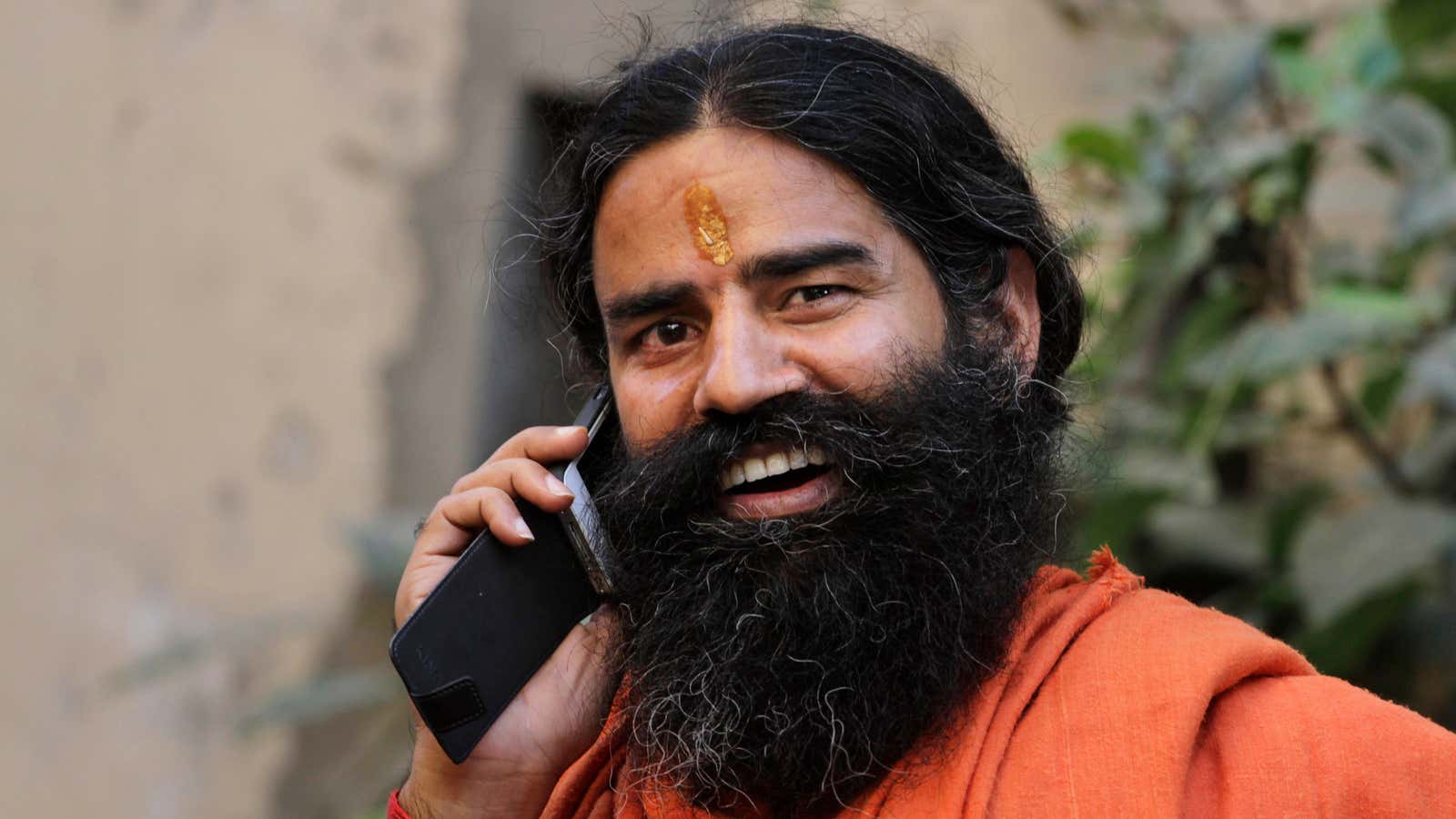Try saying “WhatsApp bro?” in Sanskrit. Not working? Turn to good old Patanjali.
On May 30, yoga guru Ramdev’s firm launched Kimbho, marking its entry into India’s instant messaging landscape which is dominated by Facebook-owned WhatsApp with over 200 million users.
“#Kimbho is the Sanskrit word used during casual chats to enquire about someone’s well being…like you ask someone ‘Kimbho brother?’ which translates to ‘What’s up, brother?’,” SK Tijarawala, the spokesperson for Patanjali Products, said in a tweet on the day of the app’s debut.
Kimbho is identical to leading messaging apps, allowing for everything from private messaging and group chatting to phone and video calling to sharing photos, videos, and GIFs. Until WhatsApp brings its payment feature to all Indians, there is little separating the two.
It has already clocked over 50,000 downloads. On iOS, it ranks fourth among free messaging apps, beating Google Duo and Hike, among others. However, at the time of publishing, the Kimbho app seemed to have been deleted from the Google Play Store but continued to be available on the Apple App Store.
With a conch as its logo, the app is created using indigenous technology under the guidance of Ramdev and Patanjali’s managing director Acharya Balkrishna, along with “their disciples, young monks, and nationalist specialists,” Tijarawala said.
Though it seems nearly impossible for Kimbho to beat a behemoth like WhatsApp, Yugal Joshi, vice-president of Texas-based consulting and research firm Everest Group, warns against undermining the power of the made-in-India sentiment.
“My sense is now, with the 2019 election around, the jingoism around nationalism is only going to go up,” he said. A combination of fear-mongering around foreign companies—like the Cambridge Analytica controversy’s #DeleteFacebook after-effect—coupled with a heightened sense of national pride could put the app on the map. “But for anything to sustain, they’d need more than that,” Joshi said.
Money, and more
Absurd as it sounds, the messaging app does not mark the first time Patanjali has veered away from its sprawling consumer goods business that sells everything from soaps to ghee and packaged food. By 2019, it plans to launch a range of readymade garments. In the tech sphere, it recently tied up with domestic teleco BSNL to launch Patanjali-branded SIM cards.
Patanjali’s attempts to diversify come in the aftermath of bleak performance. It failed to meet its targets for the last financial year, not moving the needle at all from the previous year, owing to policy disruptions such as the goods and services tax and demonetisation, Balkrishna said.
But a chat app isn’t the best business to get into during a period of subpar financial performance. “Even WhatsApp doesn’t make much money. No Indian (messaging) companies are making any profit. If you drill down and say ‘what is your timeline for dollar?,’ I don’t think anyone has a good answer,” said Joshi. “Especially from Patanjali’s perspective, I don’t think they’re after money. The social world is just to build a user base.”
